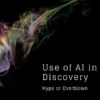The Arrival of Data Science: A Game Changer
On our previous article, we understood how automation and the emerging technologies are not depriving professionals of job opportunities but creating new ones. The only factor standing between them and a steady career path is the inevitable need to upskill to a more rewarding skill set. If you notice, there has been one technology that emerged as disruptive as the internet – data science.
The technology was a buzzword until a couple of years ago when companies increasingly started adopting it for their business growth. Glassdoor had listed data science as one of the highest paying fields in 2016, The Harvard Business Review referred data science as the hottest job, and the list simply goes on. Revolutionary, data science allows business owners and brands to get insights from areas and touchpoints they never knew existed otherwise. Apart from just getting them perspectives on customer behaviour, data science is uncovering valuable pieces of information on supply-chain loopholes and optimisation, workflow inconsistencies, operations and management grey areas, market analyses, cart abandonment, web traffic and even attrition in companies.
Not just for companies and industries, data science has become a lifesaver of sorts for professionals who have arrived at a saturation point in their careers as well. This post sheds light on some of the most crucial reasons why data science is a game changer in a number of ways.
Data Generation and Consumption
If you didn’t know, we generate billions of terabytes of data every single day. From a simple Google search to browsing through your recommendations list on Netflix, you generate data in a myriad of ways. Everything comes back to you as personalized services and is an insight into the people at the backend. Now, this was not the situation until 5 years back, when the amount of content creation was still lukewarm and smartphones and the internet had still not penetrated deep into markets.
This boom in internet usage and access has enabled companies to create multiple touchpoints on various devices such as smartphones, laptops, wearable techs, wireless hotspots and even smart appliances. These touchpoints collect data from your usage and get it processed at the backend for information. From giving the right discounts at the right time when you don’t check out your cart to reminding you to leave your home an hour before your movie, it’s all data speaking things on the tech’s behalf. The more we resort to the devices, the more data we generate and the more professionals we need at the backend.
Lack of Niche Data Experts
Data scientists do not just work on the superficial layers of data just to tell you at what time you need to leave. They work on complex layers of constructs that go about solving and predicting attrition in companies, anticipating losses in businesses and even predicting malfunctioning of heavy equipment. The truth, however, is that the industry lacks a huge volume of potential professionals who know what they need to do. According to an Edvancer report, over 50,000 positions (and counting) are still vacant for expert data scientists to fill up space. The report also reveals that the job opportunities in this sector doubled between the year 2016 and 2017 by 52%.
India is increasingly becoming a hub for data science as it trails just the US in terms of the technology’s application and deployment. In the US, a McKinsey study shares that there are close to 190,000 opportunities for data scientists and over 1.5 million jobs await managers who can understand data and its importance.
Foundation for Greater Sectors
The more you read about data science, the more you will realize the fact that data science is an integral aspect of other streams of technologies like artificial intelligence, machine learning and deep learning. Data lies at the fulcrum of all the technologies and niche experts have to work on multiple projects and jobs that make a greater sense tomorrow. With the Internet of Things already making our lives better through connected services, data scientists will not just limit their job roles to one particular aspect of the industry. The boom has just started and keeps growing in this discipline. Is this going to be a bubble or not, is debatable. There are roles and there are sub-roles data scientists would fill, making them irreplaceable at work and the industries.
These are some of the game-changing factors data science has managed to bring out in less than five years and we are not even talking about the pay scale of data scientists and the work-life balance they experience. Data science has not just substantiated the little dots of insights that fix areas of shortcomings but has helped millions give voice to their opinions.





